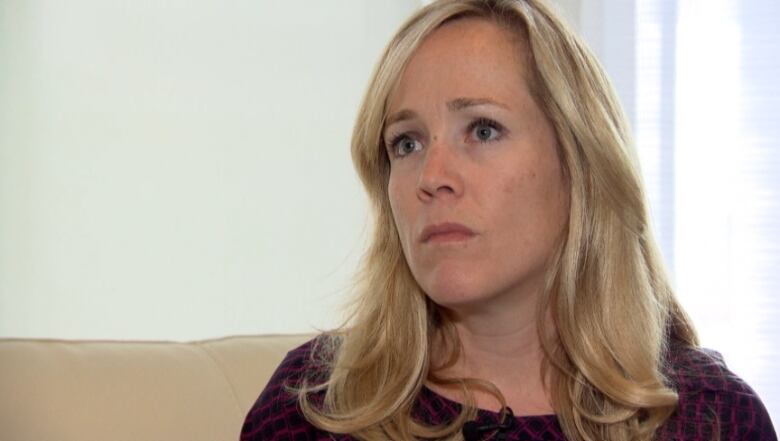Dying ALS patient lobbies Ottawa for financial aid
Brian Parsons, 48, teams up with Karen Lawrence, 37, to change compassionate care benefit
An Ottawa man dying from ALS is on a mission to help ease the economic burden faced by patients and families with the help of a woman whose family has been plagued by the disease.

Parsons is not certain how much time he has left.
"[My voice] is something that I never imagined having to lose," he said. "Here I am trying to give a voiceto a problem and I'm losing that voice.I am a big talker and it is very frustrating."
Seek compassionate care benefit increase
The father of two has been advocating for an increase in the compassionate care benefit given to families when they care for loved ones who have ALS. The money is given to families through employment insurance when they have to stay home with a dying relative.
Families are currently eligible for six weeks of the benefit, but Parsons has been working with ALS Canada to lobby for an extension to 35 weeks.That would also mean a maximum of about $18,000 given to a family, instead of the current maximum of $3,000.
Parsons advocacy has also drawn another woman to join his cause 37-year-old Karen Lawrence.
Lawrence, a clinical nurse manager at The Ottawa Hospital, has an intimate connection to ALS because 14 members of her family have died from the disease, including her father.
Lawrence also found out this year she has theALSgene, which left her devastated.

About 3,000 people across Canada suffer from ALS and about 1,000 people are expected to be diagnosed this year. The same number is also expected to die.
The disease moves rapidly, killing nerve cells and paralyzing muscles, and patients typically die within two to five years of a diagnosis.
'I can be his voice'
Parsons said this rapid progression means patients often don't have much time to advocate and he knows his work wont change his plight.
That is why Lawrence said it is so important to bolster Parsons cause.
"I can be [Brians] voice, with his support obviously. When he is not here, then I will carry on his fight. And hopefully someone will do the same for me after," she said.
"I really truly believe you have one chance at this life I know what the end is going to be for me, I've seen how this disease affects people and families and I want to make the most of the time that I have that I can walk up the stairs and play with my kids."
A recent study commissioned for ALS Canada found the total cost of caring for an ALS patient averages at more than $150,000.
That cost is why ALS Canada said its negotiating with the federal government to change compassionate care for families of ALS patients in time for the next federal budget.
In a written statement, Employment and Social Development Canada said the current compassionate care system was developed "in consultation with palliative care groups to assist families providing end-of-life care and support."













_(720p).jpg)


 OFFICIAL HD MUSIC VIDEO.jpg)
.jpg)



























































































